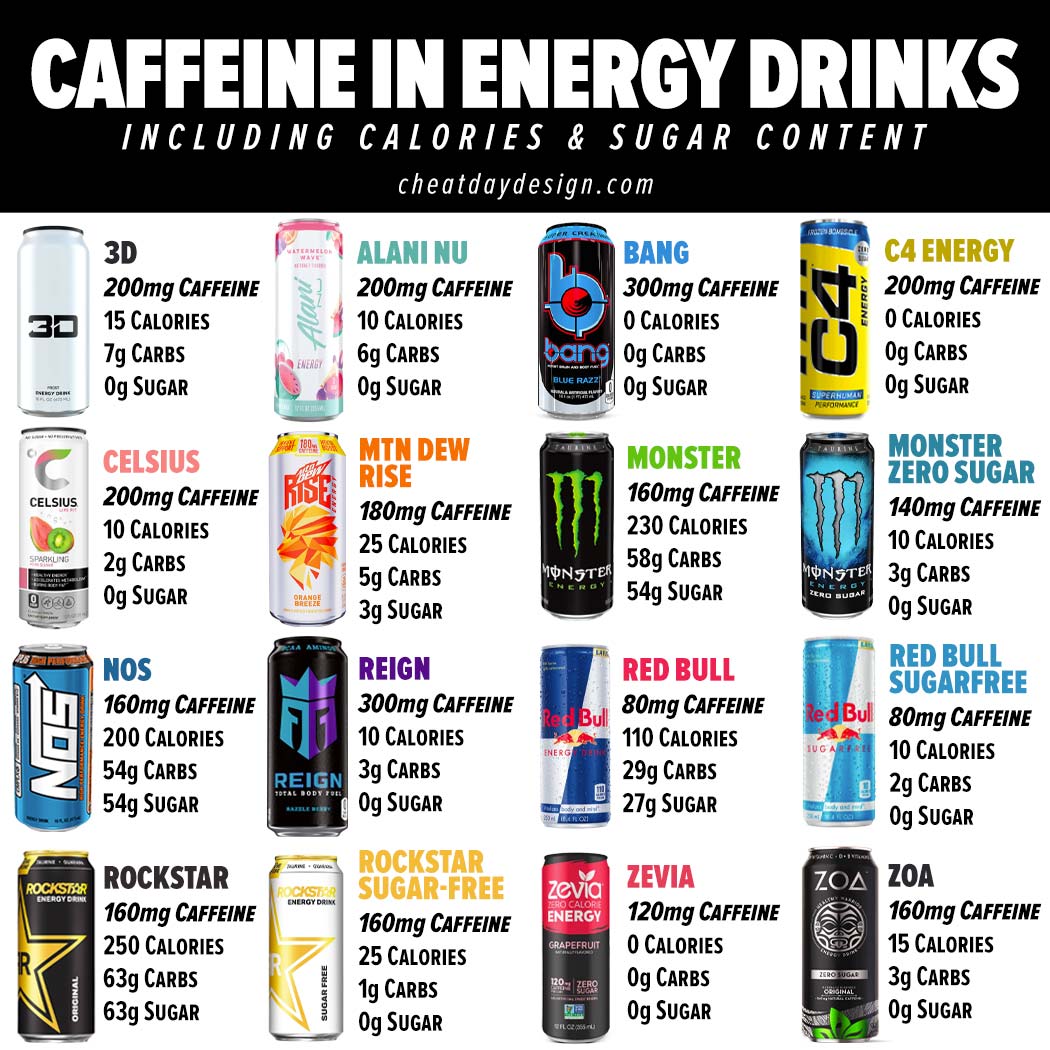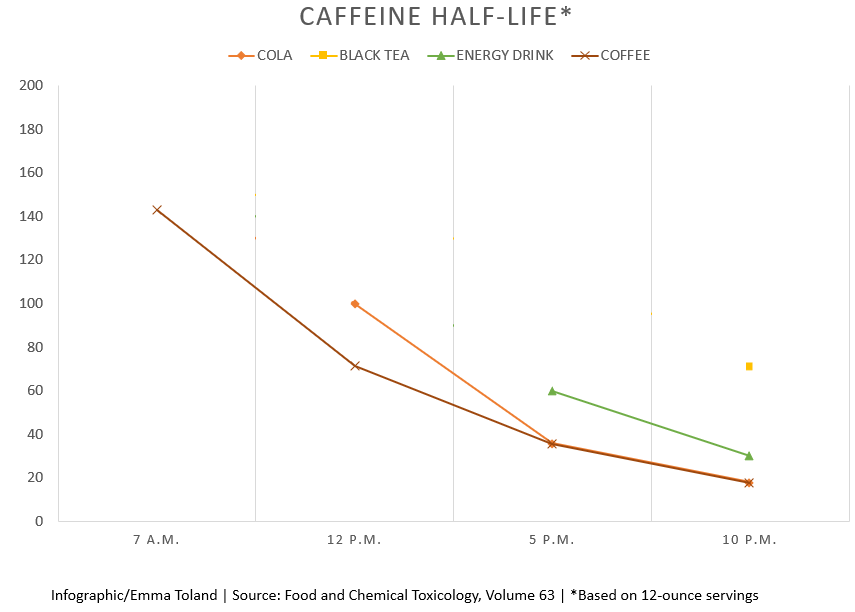

If you’re curious about how much caffeine you typically consume, take a look at the nutrition facts on your drink labels. These symptoms feel like anxiety, right? It may be that you already experience these symptoms because of other factors in your life, like a stressful job, unsafe relationships or not enough sleep-and the caffeine is amplifying (rather than causing) the anxiety alarms and signals your body is already sending you. But too much caffeine for you can show up as: 6 Individually, a person’s sensitivity to caffeine will depend on factors like weight, body type, how much they’ve eaten that day, and how often they drink caffeine, just to name a few. For example, I’ve found I enjoy the effects of 500 mg of caffeine, while my wife cuts her single cup of coffee in the morning with decaf. But remember, this is an average-it’s not necessarily the right amount for every person. 5 That’s about as much caffeine as you’d get in four cups of coffee or 10 cans of cola. On average, about 400 milligrams of caffeine per day is considered safe for an adult. What Are the Effects of Too Much Caffeine?

Too much caffeine can feel like anxiety, which can inadvertently signal your body to find something to be anxious about. 4 And because our minds are always trying to make sense of our bodies and our environment, our minds will spin up stories about why our bodies are racing, stressed and pulsing. But because it’s a stimulant, caffeine can make anxiety and panic symptoms (like a racing heart, racing thoughts or insomnia) worse in people already diagnosed with anxiety or panic disorders.

But does caffeine cause anxiety? The short answer is no, caffeine doesn’t technically cause anxiety. 2, 3 But too much of a good thing can come with its fair share of problems-especially if your body is already sensitive to stimulating foods and drinks. Studies have shown numerous benefits of drinking caffeine, including increased focus and alertness, improved athletic performance, and even an uplift in mood. And it’s why you might feel sharp, alert and ready to take on challenges after downing an energy drink. This is why you might feel like it’s impossible to wake up until you drink a cup of coffee. So when your heart starts beating faster and your body is flooded with stress-response chemicals (like adrenaline and cortisol), your thoughts and mind sharpen to keep up. Caffeine also mimics a stress response in your body.

Believe it or not, caffeine doesn’t actually give you energy, but it blocks the chemicals that build up in your body to let you know you need rest. In large doses, caffeine molecules stimulate (or activate) your brain and nervous system and help circulate stress chemicals, like adrenaline and cortisol, throughout your body. So it's important to ask: Does caffeine cause anxiety? Let’s find out.Ĭaffeine is a natural chemical stimulant found in coffee, tea, soda, energy drinks and chocolate. 1 But if you look around, you’ll see that everyone is both inhaling copious amounts of caffeine and struggling with anxiety. Given how chaotic and overscheduled our lives are, it’s no surprise 9 out of 10 adults drink caffeine. But when your energy falls short as you dash from meetings to appointments to soccer practices to dinners with your spouse and then wake up a few hours later to start the cycle over again, it’s easy to rely on one of the most used psychoactive stimulants in the world to keep you powering through: caffeine.
#CAFFEINE HALF LIFE CALC FULL#
Many of us experience anxiety as we pack our lives and schedules full of taking care of kids, crushing it at work, squeezing in a workout, trying (and possibly failing) to connect with our spouses, and maintaining a social life on the weekends. I’m one of them, and chances are, you are too. The world is an anxious place full of anxious people.


 0 kommentar(er)
0 kommentar(er)
